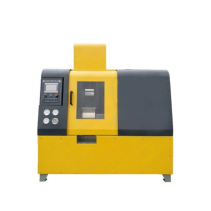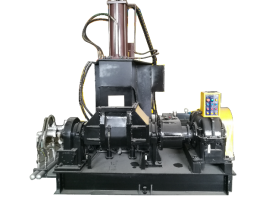Connect a biological solar panel and become a bio-solar battery. The research team has generated the power of any existing small-scale bio-solar cell: 5.59 microwatts, continuing the next step in the development of bacteria-powered energy.
LINA Dispersion Kneader with Frequency Inverter
For both LAB TEST Kneader and Mass Production Kneader, the frequency inverter can be adopted to make the rotor`s rotating speed changeable. Adjustable rotor speed can make laboratory tests more convenient and flexible and mass production less power consuming. LINA adopted frequency converters are all from international brand. All types of dispersion kneader mixer are available to adopt this device.
Advantages of LINA Dispersion Kneader with Converter
1. Eco-friendly.
2. Suitable for a variety of materials.
3. Excellent dispersion effect.
4. Easy cleaning for different materials.
5. Better performance dust sealing for preventing materials leakage.
Specifications of LINA Dispersion Mixer with Converter
LN Kneader with frequency converter
Type
Size
Dimension (mm)
Weight (kg)
LN-LAB TEST (LT) kneader
0.5
1600*900*1900
800
1
1600*900*1900
800
2
1600*900*2000
900
3
1600*900*2100
900
5
1900*1000*2100
1200
10
2200*1350*2150
2500
LN-Mass Production
15
2200*1350*2150
4000
20
2500*1450*2450
3800
25
2500*1500*2500
4500
35
3200*1900*3000
6500
55
3300*2000*3100
7800
75
3800*2300*3200
10800
110
4100*2300*3400
16500
150
4500*2600*3600
19500
Variable Speed Dispersion Kneader Variable Speed Dispersion Kneader,Laboratory Internal Mixer,Different Rotor Speed Kneader LINA Machinery Industrial Co.,Ltd , http://www.linakneader.com
Researchers at Binghamton University said: "Once a functional bio-solar panel becomes available, it may become available to provide small-scale, wireless telemetry systems for long-term power, as well as at remote sites, where frequent battery replacement is unrealistic and becomes a reality. Use a permanent power source for wireless sensors." 
This study can also enable the photosynthesis of microorganisms in a smaller group, a critical understanding of the process of electron transfer and a good control of the microenvironment, thus achieving a common platform for the study of basic biological solar cells.
The current study is the latest initiative using cyanobacteria as a clean, sustainable energy source. A micro-based microfluidic single-chamber device to house bacteria replacing conventional, double-chambered bio-based solar cells. The performance of bio-solar cells has been significantly improved through the innovative miniaturized device structure and the connection of multiple miniature cells on the panel. 

September 05, 2019